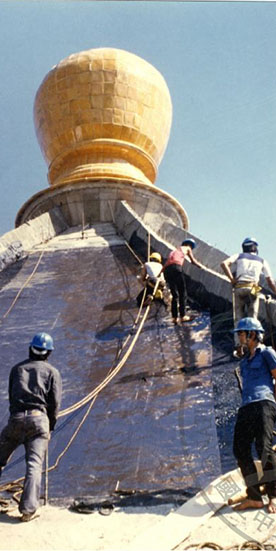
From Break to Continuity: Articulating the Significance of Change in Conserving Negative Heritage
The negative appellations of heritage emerged in academic discussions during the critical turn in heritage studies. Scholars moved beyond the traditional focus of heritage studies, which had centred on the technical issues involved in management and practices, to an emphasis on the socio-political process of making and dealing with such sites. Heritage is no longer a static notion or a term associated with physical relics, but a collection of culturally relative constructs. This emphasis challenged the Authorized Heritage Discourse (AHD), as Laurajane Smith has coined the term, the AHD privileges, the innate aesthetic and scientific value of heritage sites, as well as the physicality and monumentality of heritage (2006, p. 11).
The conservation practices that employ AHD pose a fundamental conflict with the understanding of negative heritage, particularly for those recognized as monuments. While heritage conservation under AHD is often used to ensure the preservation of physical form and avoid change, the problem of how to conserve negative heritage cannot be reduced to the question of how to maintain its authenticity. How should conservation be approached in response to the negative perception of heritage sites? What could be the meanings of ‘change’ in the context of conserving negative heritage?
This study aims to articulate the meaning of change in relation to the task of conserving negative heritage. It examines the authoritarian legacies in Taiwan, with particular attention given to Chiang Kai-Shek (CKS) Memorial Park, to discuss the difficulties and challenges of preserving monuments that are perceived as negative heritage. The main research methods are mixed, with a context-specific analysis followed by empirical case studies, archival research, documentation, and the application of observation and interview techniques to gather data that shed light on the contested meaning of change in the context of negative heritage conservation. In so doing, it argues that one meaning of change, particularly relevant to negative heritage, is to break the hegemony of the unsettling past.
Researcher: I-Wei Wu
